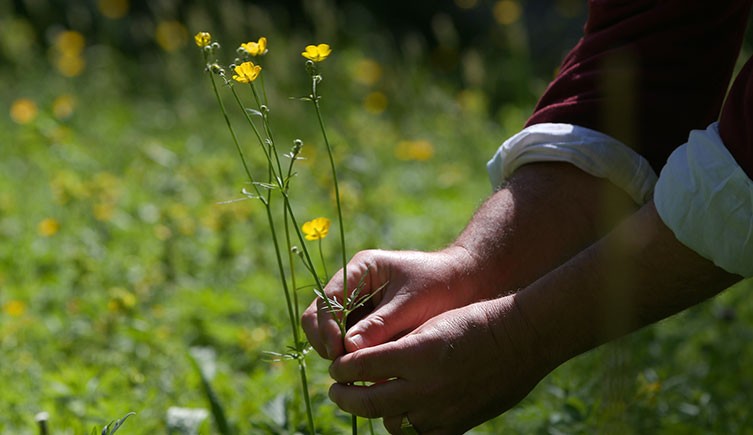If you’re looking to start a business that is both creative and lucrative, growing and pressing plants and flowers for the beauty industry may be the perfect venture for you. This business is perfect for those with a green thumb or an eye for beauty, as it involves cultivating, harvesting, and pressing plants and flowers to be used in products such as cosmetics, skincare, and aromatherapy.
With an increasing demand for natural ingredients in the beauty industry, now is the perfect time to start your own business in this growing field. In this guide, we’ll walk you through the steps of starting your own business in growing and pressing plants and flowers for the beauty industry.
What Resources You Need to Start a Business Growing and Pressing Plants and Flowers for the Beauty Industry
Starting a business in the beauty industry with a focus on growing and pressing plants and flowers takes some careful planning. The necessary resources needed to get the business up and running include:
1. Equipment: Depending on the type of business, you will need to purchase some essential equipment. This includes greenhouse supplies, light fixtures, and irrigation systems for growing plants, as well as presses, drying racks, and other tools for pressing flowers and plants.
2. Space: You will need a space for your business. This could be a greenhouse, warehouse, or even a small retail space. Consider the size of the space you need and its location when selecting a space for your business.
3. Supplies: You will also need to purchase various supplies for your business, such as seedlings, soil, fertilizer, and other supplies.
4. Licenses and Permits: To operate a business in the beauty industry, you will need to obtain the necessary licenses and permits. You should contact your local government to find out what licenses and permits you need to obtain.
5. Employees: You will need to hire employees to help you with the growing and pressing process. This could include plant experts, pressers, and other employees to help with the day-to-day operations of the business.
6. Business Plan: Finally, you will need to create a business plan that outlines your goals, strategies, and financial projections. This will help you create a roadmap for success and ensure that your business is properly funded.
By having the necessary resources in place, you can successfully launch a business in the beauty industry focused on growing and pressing plants and flowers. With the right preparation and planning, you can create a successful business that meets the needs of the beauty industry.
How to Secure the Necessary Funding for Your Business
Starting a business requires a significant amount of financial resources, and securing the necessary funding can be a challenge. As an entrepreneur, it is important to be aware of the different options available for obtaining the funds needed to get your business up and running. One of the most common sources of funding is venture capital.
Venture capital firms are companies that invest in businesses, usually in exchange for a stake in the business. These firms are typically willing to invest in a startup if they believe the business has potential for growth and profitability. However, it can be difficult to secure venture capital, as the firms are often looking for businesses that have a strong business plan and a unique product or service.
Another option for obtaining funding is angel investing. Angel investors are private individuals who invest in businesses in exchange for equity in the company. Like venture capital firms, angel investors are looking for businesses with potential for growth and profitability. However, angel investors may be more willing to invest in a business that is in the early stages of development, as they may be more patient with the return on their investment.
Small business loans are also available from banks and other financial institutions. These loans are typically used to help startups get their business off the ground. Small business loans usually require collateral, such as real estate or equipment, and interest rates can vary based on the lender. Crowdfunding is another option for obtaining funding for a business.
Crowdfunding involves raising money from a large number of people, usually through an online platform. This can be a great way to get the money you need to get your business started without having to give up a stake in the company.
Finally, you may be able to obtain funding from grants or government programs. These programs are typically designed to provide assistance to small businesses and startups. Grants can be a great way to get the funds you need without having to take on debt or give up equity in your business.
Securing the necessary funding for a business can be challenging, but with the right resources and a good business plan, it is possible to get the funds you need to get your business up and running. It is important to research all of the different funding options available and consider which ones may be the best fit for your business.
How to Find the Right Location for Your Greenhouse or Farm
Finding the right location for a greenhouse or farm is a critical decision. The right spot can lead to successful and profitable operations, while a poorly chosen location can lead to costly mistakes. Here are some important considerations to help you find the ideal spot for your greenhouse or farm.
1. Climate and Weather: Temperature and rainfall are two of the most important factors to consider when choosing a location for a greenhouse or farm. Look for a location with a mild climate and reliable rainfall to promote crop growth. If you plan to use a greenhouse, research local weather patterns. If a greenhouse isn’t an option, consider a spot with a warmer climate.
2. Soil Quality: Good soil is essential for any farm or greenhouse. Make sure the soil at the location you are considering is rich, healthy, and free of contamination. Also, research local soil composition and drainage to ensure the soil is suitable for the plants you plan to grow.
3. Proximity to Resources: Consider the proximity of your location to essential resources such as water, electricity, and fuel. Also, look for a spot that is conveniently located near markets or customers to help you easily transport your crops.
4. Zoning Laws: Before you begin constructing your farm or greenhouse, check local zoning laws to make sure what you are building is allowed. Also, check to make sure the land is not subject to any environmental restrictions that could limit your operations.
5. Space: Consider the amount of space you need for your greenhouse or farm. Will you need room for a greenhouse, storage space for crops, or a large area for crop production? Make sure the lot you are considering is big enough to accommodate your needs.
Finding the right location for your greenhouse or farm is critical to the success of your operations. Make sure you take the time to research and consider your options so you can find the spot that best suits your needs.
Tips for Growing Quality Produce for the Beauty Industry
1. Choose the right varieties: Select varieties best suited to your climate, soil, and growing conditions. Pay attention to the specific characteristics of each variety to ensure you get the highest quality produce possible.
2. Pay attention to soil health: Healthy soil is key to growing quality produce. Test your soil before planting and adjust with organic matter and fertilizer as necessary.
3. Monitor your plants: Keep a close eye on your plants for signs of pests, disease, and nutrient deficiencies. Take action as soon as you notice any of these issues to prevent them from spreading.
4. Harvest at the right time: Knowing when to harvest your produce is essential for getting the best quality. Keep an eye on your plants and harvest when they’re at their peak condition.
5. Store properly: Store your harvest in a cool, dry place, and keep it away from direct sunlight and extreme temperatures. Proper storage will help ensure your produce stays fresh and of the highest quality.
6. Practice good hygiene: Keep your hands and tools clean, and wash your produce before use. This will help prevent contamination and keep your produce safe for use in the beauty industry.
How to Store and Distribute Your Products to Beauty Companies
Storing and distributing your products to beauty companies is an important part of running a successful beauty business. To ensure that your products are distributed efficiently, it is important to have a good understanding of the logistics involved.
1. Develop a Good Storage System Before you can begin to distribute your products to beauty companies, you must first establish a good storage system. This will allow you to store products in an organized and secure manner. Make sure that your storage facility is climate-controlled and is designed to protect your products from damage. Also, consider using a warehouse management system to help you track product availability and inventory levels.
2. Choose a Distribution Method Once you have established a good storage system, you must then decide which distribution method is most suitable for your business. Depending on the size of your operations, you could opt for an in-house shipping and fulfillment solution, or you could hire a third-party logistics provider to handle the shipping and fulfillment for you.
3. Find Beauty Companies to Distribute to Now that you have a storage system and distribution method in place, you must now find beauty companies to distribute to. You can use a variety of tools to help you find potential customers, such as online directories, trade shows, and industry events. Once you have identified potential customers, you should contact them to discuss your product offerings and the terms of distribution.
4. Negotiate Terms of Distribution Once you have identified potential customers, you must negotiate the terms of distribution. This includes the terms of payment, shipping costs, and any other details that are necessary to ensure that your products reach their destination in a timely and cost-effective manner.
5. Implement Your Distribution Plan Once the terms of distribution have been agreed upon, you must then implement your distribution plan. This includes making sure that all products are properly packaged and shipped to the customer in a timely manner. You should also ensure that you have a system in place to track the status of shipments and to monitor customer satisfaction.
By following these steps, you can ensure that your products are stored and distributed efficiently and effectively to beauty companies. With the right storage system, distribution method, and customer contacts, you can ensure that your beauty business runs smoothly and successfully.
In conclusion, starting a business of growing and pressing plants and flowers for the beauty industry is a great opportunity to provide unique and natural beauty products to the market. It requires knowledge of the industry, research on suppliers and customers, and dedication to the business. With proper planning and preparation, this business can be a lucrative venture that has the potential for great success.



